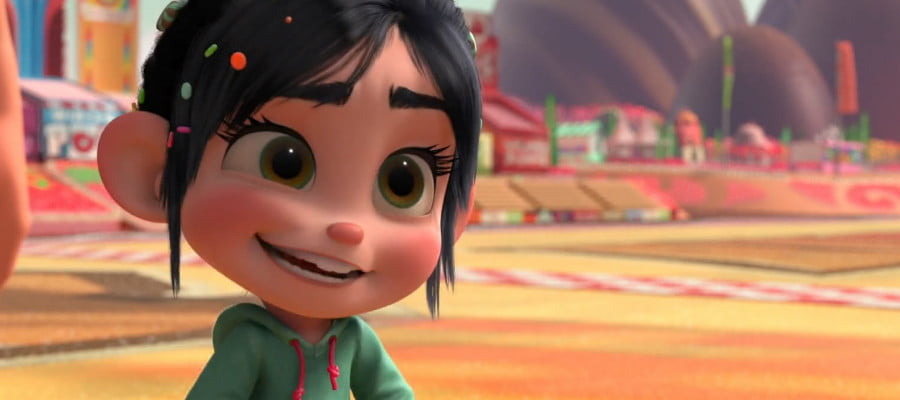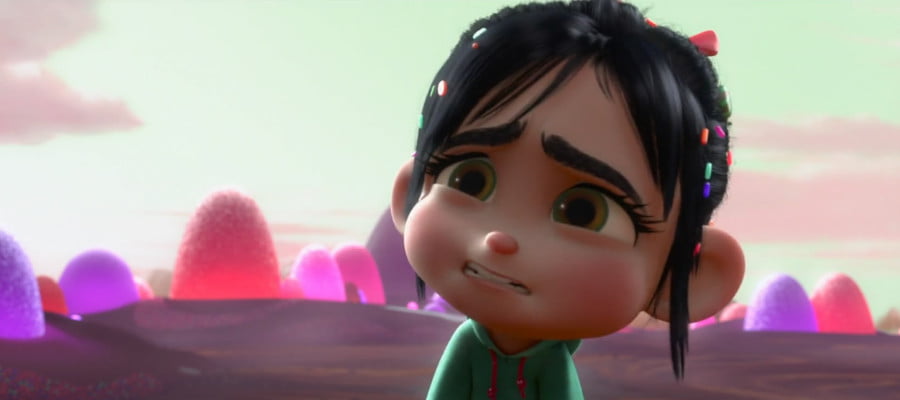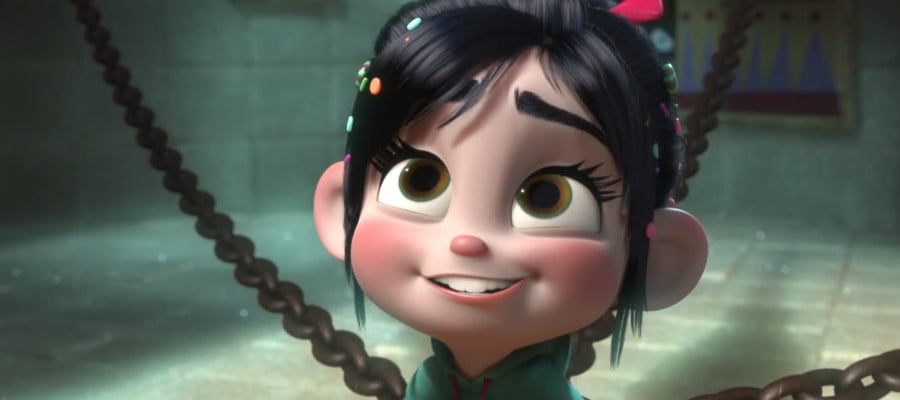Hey, did you already listen to the Wreck It Ralph episode of The Disney Animated Canonball, a podcast where I, Talen Lee (he him) and not-appearing-in-this-post Fox Lee (she her), watched all of the Disney Animated Canon movies? If no, then keep going and you should maybe check it out later because it was a big project, watching and podcasting about 54 movies, of which upwards of five were movies I think are any good, and that there, that’s Disney magic, baybee, but if you have then this is going to sound like a rerun.

In case you don’t remember, Wreck It Ralph is an awful film.
There’s this girl in the story named Vanellope. She’s a girl who doesn’t present like the other girls in the game. She doesn’t have access to the same resources as they do. They have a special slur for her, a glitch. She does not interact with reality the same way they do, and she is, very importantly, made wrong. There is something in her code, something about the way she was created, that indicates she shouldn’t exist, and she certainly cannot be a racer. The most dreadful thing in the world, the power structure says, is if she were to be a racer, and worse still if she wins. If she wins, it would destroy the world, they say, but it turns out that if she does it, it’s actually worse, because her winning shows that all the fears they had about her being illegitimate are just wrong, and the result upends the power structure and dissolves an illegitimate authority asserting itself as the arbiter of what is fair and correct.
And then she gets to be a princess.
At its heart, this narrative is the same basic narrative of the trans women in sports, which is the same as the narrative of almost all times that a dominant power wants to determine who does or does not get to count as ‘fair play’ in a sport. Sport is not a politically neutral experience, it’s fundamentally going to reflect the culture and values of the communities that it includes. Consider how many sports are built in such a way as to isolate around people with different abilities, whether those abilities impose extra challenges or grant extra advantages. The rhetoric is all the same.
It’s not fair.
She’s built wrong.
What if someone gets hurt.

These are all dumb arguments, disingenous in the extreme and I honestly do not have the inclination to address them. No, sports are not fair. The entire point of sports tournaments is to commit an elaborate sorting mechanism to find the person who can do the best version of a thing on the best day and the resultant algorithm is not a fair one. It’s explicitly unfair because of who it’s choosing to include and how they get to be included.
There’s a lot to be said about this stuff as it relates to cricket, but not by me. It’s Beyond A Boundary again, a book by CLR James about how his relationship to cricket reflected perfectly his relationship to colonial politics. The ways there were to be a good player of the game existed orthogonally to the ways you could be included in the best teams that played the game. There was a diagram of competing lines, where the darker your skin, the more skilled you had to be that you might get recruited. And when pressed on the reasons for this, you’d often get some things that might sound familiar.
Maybe it’s because these people have an unfair advantage and it dilutes the purity of the sport. Maybe it’s because they don’t really know how to play right. Maybe it’s because their presence on the field is dangerous to other players. Maybe it’s because their presence is dangerous to themselves. There’s always some reason, some reasonable cause, for these exclusions. There’s always some idea about why it’s okay for their accomplishments to not count.
These exclusionary rules and boundaries bring us back to the way that, once again, seeing the lines of the magic circle is itself an act of political privilege. If you can perceive the game as completely isolated from your material considerations then it’s only through a sort of shared, desperate and absolute devotion to doing so, and the fiction that politics are not related is part of the fiction of that game.

You might wonder why Disney of all people would construct this kind of story, focusing on such an intense and timely issue, when it’s not like Disney are the kind of company that wants to say anything meaningful about trans people in the first place. And of course, the answer there is of course it’s not.
It’s not that the idea is explicitly about trans women in sports; it’s that it takes the narrative of trans women in sports, and then tells you that story, removing trans women from it entirely. This is a recurrent thread in media, that wants to take the stories of marginalised people and restructure and process them so that they can instead be used to uplift the stories of the oppressor centre. Even in the context of Wreck-It Ralph, you have this story about Vanellope, which is nonetheless, for some reason, requires the centering of Ralph to make the story happen at all; Ralph is not a meaningful addition to her story, her story can happen entirely without him, but all this story has to be reprocessed, consumed and digested into a form where it can be the story, somehow, of an unrelated 50 year old dude who doesn’t really care about videogames.
It’s an idea that sticks with me because it’s the same structure as a queer narrative, that you’ll see repeated over and over again that just wants to not involve any queer people because, you know, icky. It is the invocation of trans women’s stories without involving trans women, a desire for their struggles without their identities, for fear you might feel sympathy for them and see the very reasonable ways in which their stories are unfair.
You might have to understand them, then.